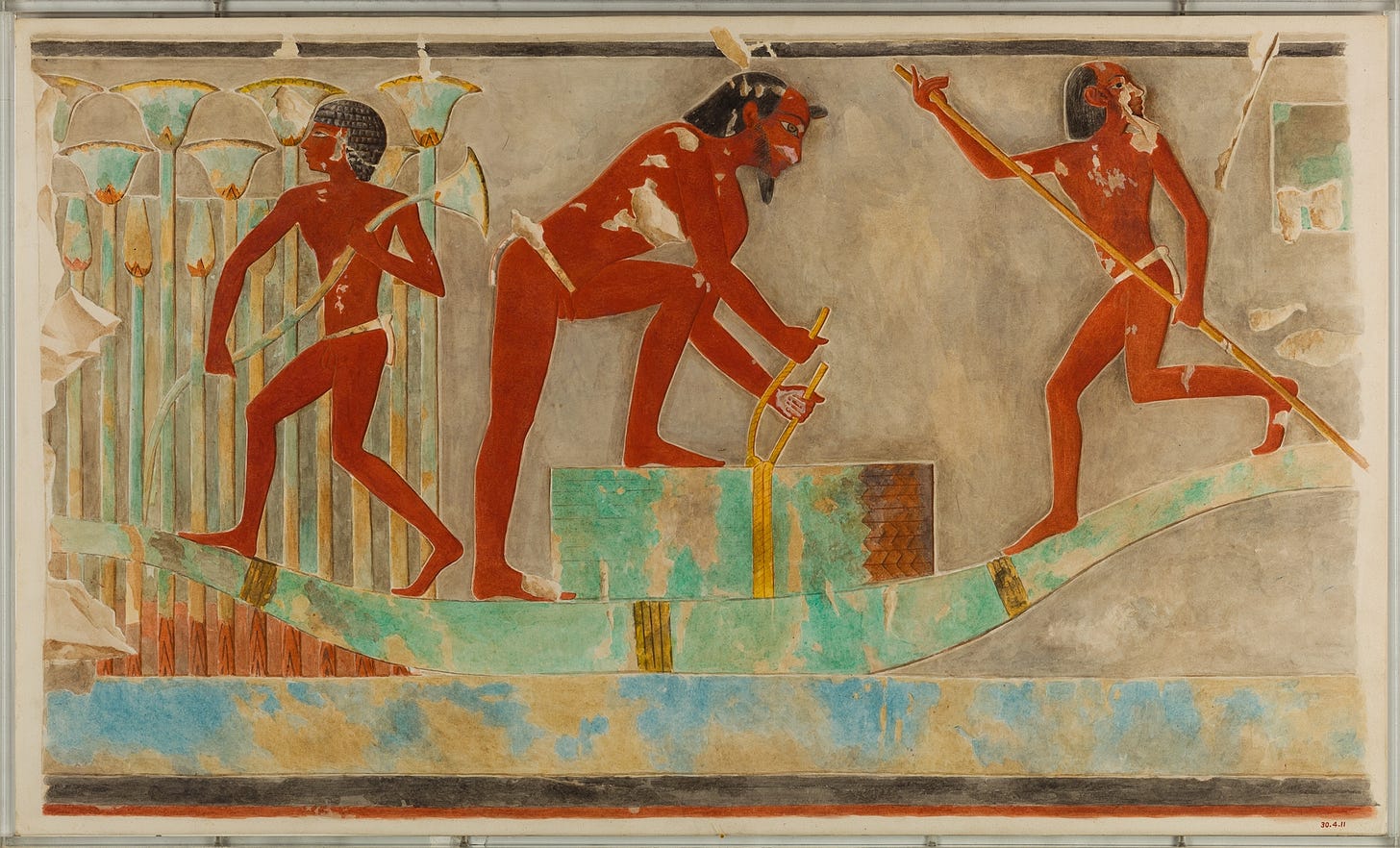It’s Passover week, so both pieces revolve around one topic—freedom. For this special occasion, I’ll start with politics.
A piece of politics: The Pot Full of Meat and the Great Comeback of Authoritarian Leaders
I was making a Passover kosher breakfast for my non-Jewish friends this morning and explaining the Exodus story—which is the heart of Passover, celebrated this week.
Despite popular belief, the Exodus story isn’t about liberation and the pursuit of freedom. It’s a case study in human nature’s tendency to reject freedom.
The Israelites were freed from Pharaoh, a ruler who didn’t serve their interests. As they wandered in the desert for 40 years before reaching the Promised Land, generations changed—and so did the narrative. They began to remember their days under Pharaoh in Egypt not as times of slavery and suffering, but as times of prosperity, with the “pot full of meat.”
While waiting for Moses to come down from Mount Sinai with the Ten Commandments, they went on to create and worship the golden calf.
So, upon regaining freedom, the Israelites proved again and again their tendency to reject it—seeking other authorities, any kind of authority, really—anything that would spare them from the burden of developing self-discipline and an internal moral compass.
This resonates deeply with Erich Fromm’s ideas on freedom1.
He distinguishes between “freedom from” (external control) and “freedom to” (inner self-direction).
The Israelites had “freedom from” Pharaoh—but they couldn’t handle the “freedom to” self-govern. A flaw in human nature, laid bare.
Fast forward to today—what’s most interesting is watching certain leaders make a glorious comeback. They rise within democratic systems, gradually push toward authoritarianism, get voted out or sidelined for a while… only to return—elected again—this time even more fierce and brutal. And why? Because people forget. They forget the original story, the early warning signs, the erosion of freedoms. Memory fades, narratives shift, and nostalgia kicks in—until the “pot full of meat” starts sounding better than the responsibility of freedom.
🇭🇺 Orbán Viktor (Hungary)
First Term: Prime Minister from 1998 to 2002.
Return: Re-elected in 2010 and has remained in power since.
Authoritarian Shift: Since his return, Orbán has overhauled Hungary’s constitution, curtailed judicial independence, controlled media, and centralized power—prompting the EU to label Hungary a “hybrid regime of electoral autocracy.”
🇺🇸 Donald Trump (United States)
First Term: President from 2017 to 2021.
Return: Lost to Biden in 2020 but won the presidency again in 2024.
Authoritarian Tendencies: Trump has pushed boundaries on judicial independence, media attacks, and democratic norms. His second term has further politicized institutions and resembles patterns seen in autocratic regimes.
🇮🇱 Benjamin Netanyahu (Israel)
First Term: Prime Minister from 1996 to 1999.
Return: Came back in 2009, remained until 2021, and returned again in 2022.
Judicial Overhaul: Netanyahu’s 2022 return launched a judicial reform to reduce the Supreme Court’s independence—sparking mass protests and warnings from former Israeli security chiefs about democratic backsliding.
🇷🇺 Vladimir Putin (Russia)
First Presidency: 2000 to 2008.
Return: After serving as Prime Minister (2008–2012), he returned as President in 2012 and has remained in power since.
Authoritarian Rule: Putin’s comeback brought intensified control over media, arrests of opposition leaders like Alexei Navalny, foreign agent laws, and a constitutional change allowing him to potentially stay in power until 2036.

A piece of culture: Bob Marley’s call for action.
In the Exodus story, the Israelites were freed from Pharaoh, but they weren’t ready for that kind of freedom. They had escaped physical bondage, and went looking for someone else to give them moral direction. Their mindset hadn’t changed.
But true freedom isn’t granted by rulers or revolutions
In The Social Contract (1762), Jean-Jacques Rousseau2 explains how true freedom is found in self-rule—but that takes a mature, morally developed citizen. This actually diverges from many Eastern religions and philosophies.
Taoism3 and Hinduism4 ask us to free ourselves through introspection and the release of desire, using self-control and self-discipline. The more restraints we place on ourselves, according to these traditions, the freer we become.
The key in all of this is that freedom lies in making our own rules.
True freedom demands internal strength—an ability to think for yourself, to govern yourself.
Or in the words of Jean-Jacques Rousseau:
“Freedom is obedience to a law we prescribe to ourselves.”
And in the words of Bob Marley:
"Emancipate yourselves from mental slavery,
None but ourselves can free our minds."
It’s the end of the world.
Don’t waste time doomscrolling and consuming bullshit.
Eat well, walk enough steps a day, travel as much as you can, be a tourist in your own hometown.
Call your loved ones, forgive your parents.
If you like my writings, you’re welcome to show it 👇🏻
Fromm, E. (1941). Escape from freedom. New York, NY: Farrar & Rinehart.
Rousseau, J.-J. (1762). The social contract (C. L. Gray, Trans.). T. Fisher Unwin. (Original work published 1762)
Wu, J. C. H. (2000). The Tao of Freedom: A Reinterpretation of Taoism. The Journal of Chinese Philosophy, 27(3), 333-348.
McCann, C. S. (2006). Freedom and Discipline in Yoga and the Bhagavad Gita. Philosophy East and West, 56(1), 97-115.



hey. i must confess that i started reading this with a prejudice, turns out i was wrong. the problem with digesting the idea of freedom and taking responsibility is a huge relevant problem and it is wise that you explained it with Jewish context. overall, i liked it. plus, you must add Erdogan to those corrupt leaders, saying this as a Turkish person.
I appreciate the connections you made as a Jewish person celebrating Passover and the stories of what happened after freedom from the Pharo to illustrate what is happening to these countries. As a citizen living under one of these regimes- I have nothing but hope that our leader’s supporters see him as he is and that we come together to make things right again.